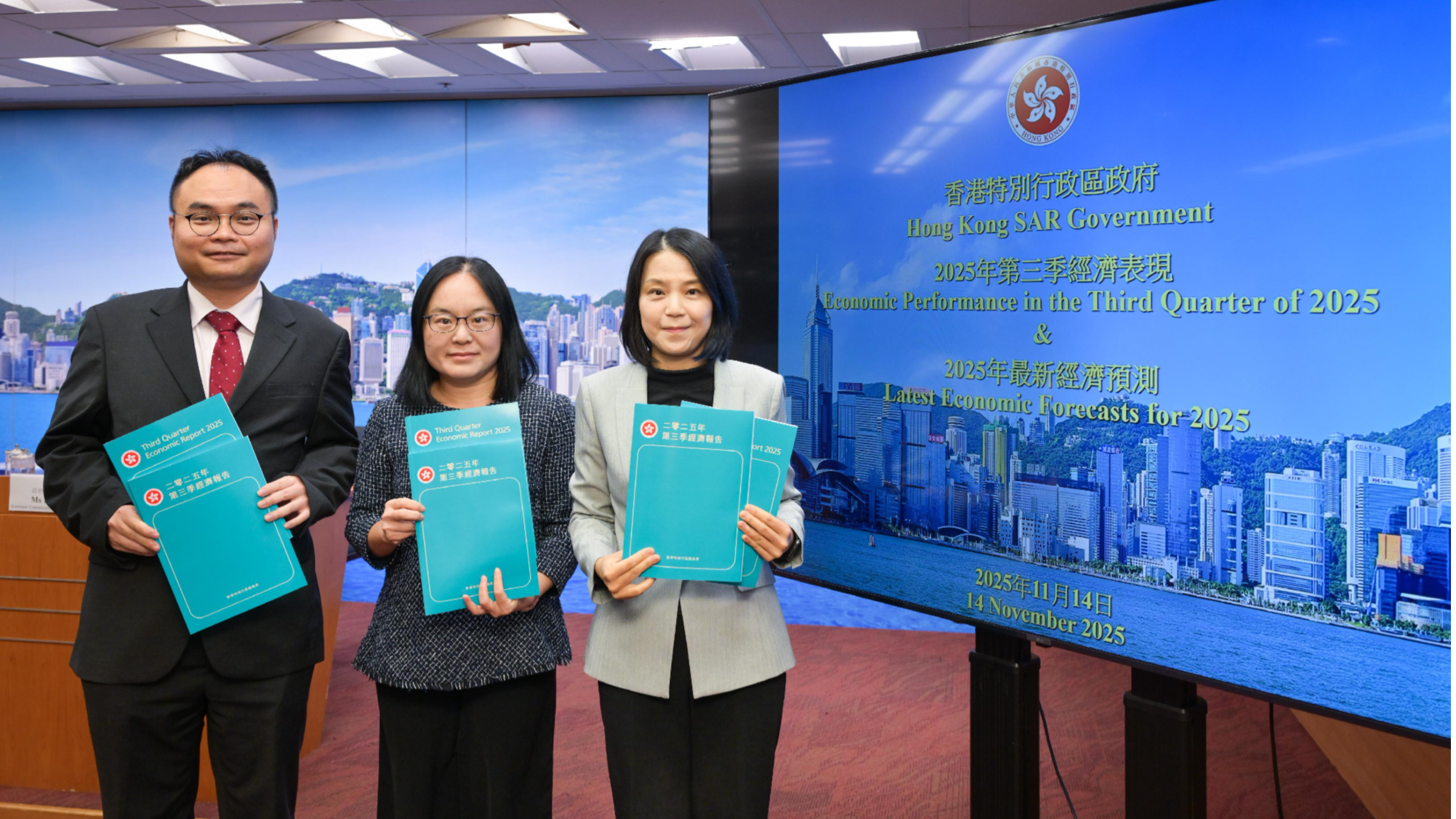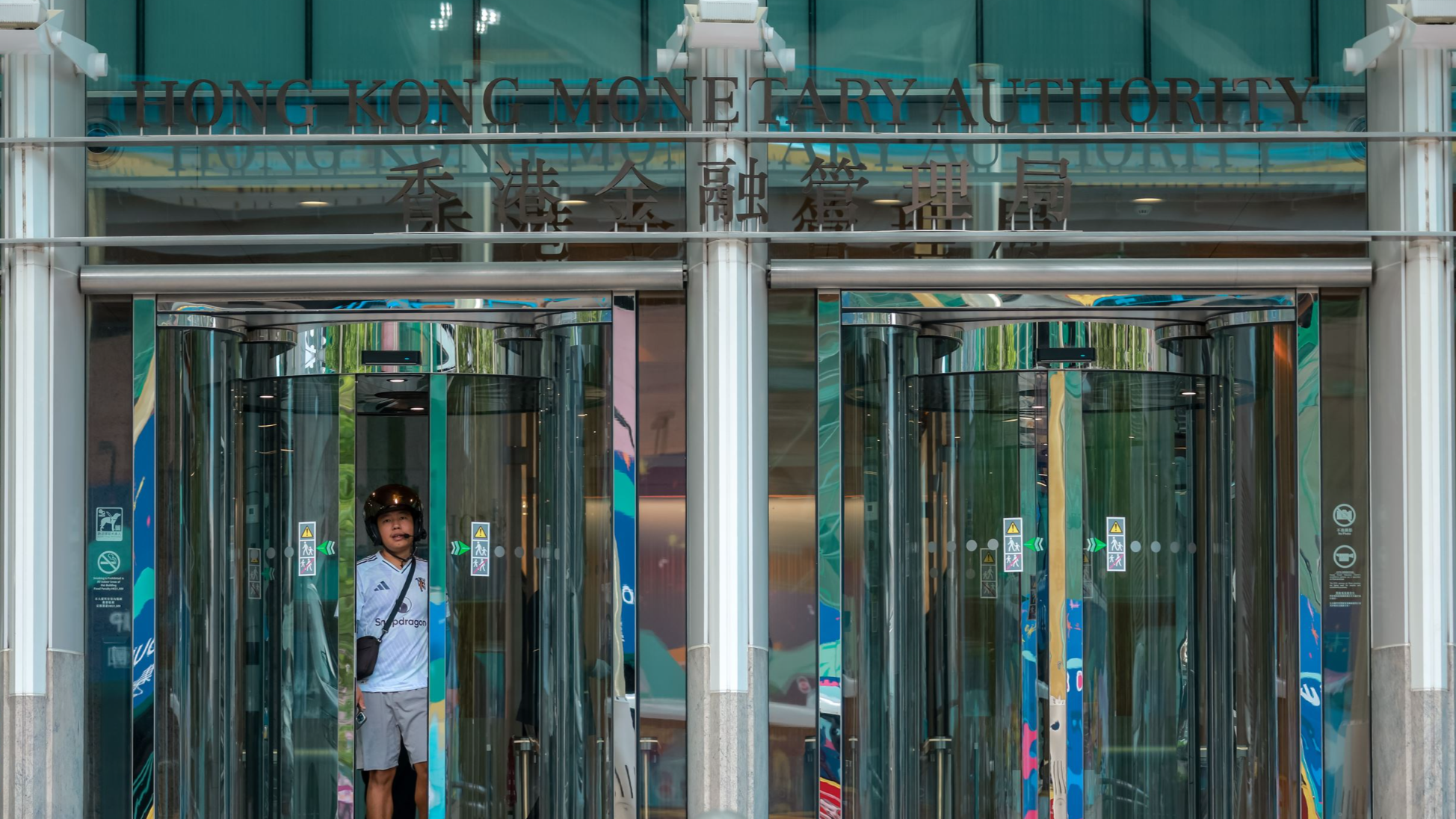
The government of Hong Kong Special Administrative Region revised upward the city’s economic growth figure for 2025, citing improved economic performance in the first three quarters of the year.
The administration announced on Friday that it expects the SAR’s real gross domestic product to expand 3.2 percent for this year, from its previous 2 to 3 percent growth forecast made in August.
“Sustained moderate growth of the global economy in the near term, coupled with recent easing of China-United States trade tensions, should lend support to Hong Kong’s goods exports. Continued increases in inbound tourism and vibrant financial market activities should provide further impetus to services exports,” the acting government economist Cecilia Lam said.
The economist added that the gradual recovery in consumption confidence and the steadfast improvement in business sentiment should help bolster consumption and investment activities.
ALSO READ: Economist: HK seen as global growth epicenter
In the third quarter, the city’s GDP grew 3.8 percent over a year earlier, driven by a continued surge in exports and sustained expansion in domestic demand.
Total goods exports continued to grow at an annual rate of 12.1 percent in the period, propelled by strong demand for electronics-related products and buoyant regional trade flows in Asia. Services exports also expanded 6.3 percent over a year earlier, mainly supported by sustained increases in inbound tourism and cross-boundary traffic, as well as vibrant cross-boundary financial service activities.
On the domestic front, private consumption expenditure rose 2.1 percent year-on-year, reflecting the continued recovery of the local consumption market. Overall investment expenditure saw an accelerated year-on-year increase of 4.3 percent, alongside the economic expansion and stabilization in the residential property market.
However, the government said that it will not be complacent. “External uncertainties arising from the lingering impacts of trade barriers, the pace of US interest rate cuts, and the potential moderation in goods export growth due to fluctuations in external demand warrant close monitoring,” Lam said.
READ MORE: Hong Kong registers 3.8% GDP growth in Q3, most since 2023
HSBC Global Investment Research raised Hong Kong’s GDP forecast for 2025 from its previous estimate of 2.5 percent to 3.2 percent for this year as the economy is now anchored at a stronger footing.
“Looking forward, with monetary easing on the back of the US Federal Reserve’s rate cut, and new growth areas including increased connectivity, technology development and financial technology, these are the factors that HSBC has turned more positive on (concerning) the Hong Kong economy,” said Erin Xin, Greater China economist at HSBC Global Investment Research.
Standard Chartered Bank (Hong Kong) also upgraded Hong Kong’s GDP growth from its previous forecast of 2.2 percent to 2.8 percent for 2025. But the bank’s Greater China economist, Hunter Chan, said “persistent trade policy uncertainty, the fading front-loading effect and its lagged impact on the Hong Kong labor market still pose risks to near-term growth.”
The ASEAN+3 Macroeconomic Research Office (AMRO) said it expects Hong Kong’s economy to remain moderate at 1.9 percent amid external headwinds
“It is crucial for Hong Kong to further calibrate its macroeconomic policy stance, bolster growth, secure new growth drivers, and tackle structural challenges while safeguarding its positions as a leading international business and finance hub,” AMRO’s lead economist Lee Jae Young said.

With a vibrant global financial market, the Hong Kong Monetary Authority on Thursday announced the Exchange Fund’s investment income had reached HK$274 billion ($35.1 billion) in the first three quarters, exceeding the HK$218.8 billion recorded in 2024, marking its best performance for a first-three-quarters on record. This figure however does not include valuation changes in private equity and real asset investments held in the long-term growth portfolio.
Investment gains from bonds was HK$112.6 billion in the period, a decrease of over 9 percent year-on-year. Gains on Hong Kong equities reached HK$40.1 billion, an increase of some 41 percent, while gains on other equities totaled HK$59.5 billion, a decrease of nearly 10 percent. There was a positive foreign currency translation effect of HK$30.2 billion on non-Hong Kong dollar assets.


